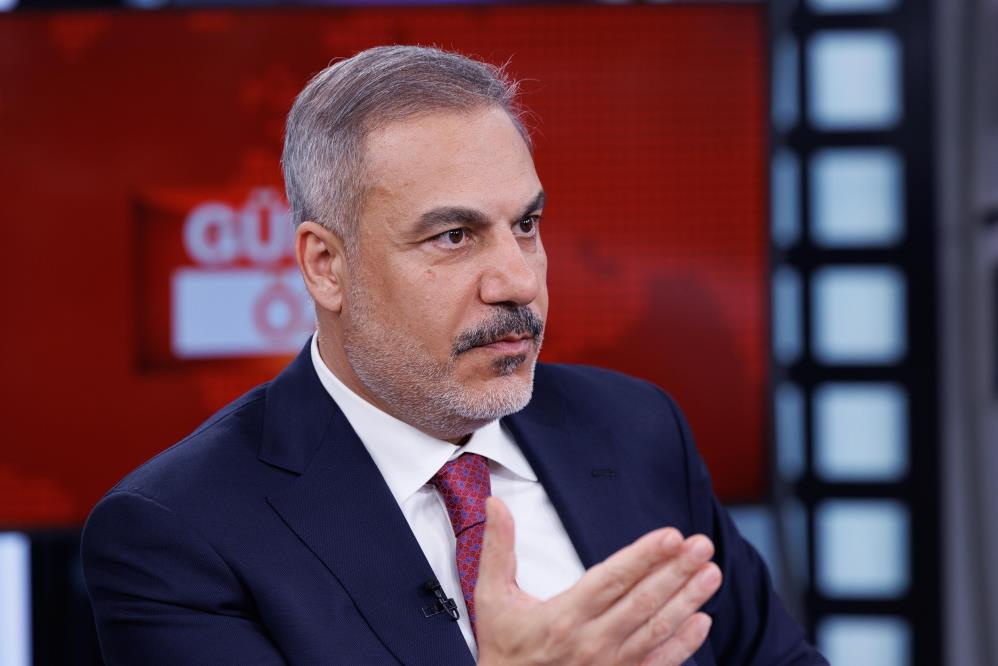Turkish FM Stresses Importance of Preserving Ethnic Languages in Syria
“The People’s Defense Units (YPG) must reach an agreement with Damascus,” he noted, adding that unity under a single armed force is essential.

ERBIL (Kurdistan24) — Turkish Foreign Minister Hakan Fidan on Thursday underscored the importance of safeguarding the cultural and linguistic rights of Syria’s diverse ethnic groups, while also reaffirming Turkey’s security priorities in the region.
Speaking during a live broadcast on TGRT Haber TV, Fidan emphasized that Turkey would not act with hostility unless provoked, stressing the country’s determination to respond to any threats across its borders.
“We do not have a structure that is hostile to us unless we are hostile to it,” Fidan said. “Our President has incredible sensitivity regarding national security. When there is a threat beyond our border, we do not expect it to reach us here. If we are antagonized, we will not back down.”
The foreign minister also addressed broader regional dynamics, warning against policies that fuel division in Syria. “There is nothing acceptable about Israel’s attitude towards Syria,” he said. “The idea of division is wrong; protecting one’s ethnicity while depriving others of their rights to build a unitary state is also unacceptable.”
Highlighting the role of Kurdish groups, Fidan called for greater political accommodation in Syria. “The People’s Defense Units (YPG) must reach an agreement with Damascus,” he noted, adding that unity under a single armed force is essential. At the same time, ethnic groups should be free to preserve their languages and identities.
He further stated that Turkey maintains positive relations with many Kurdish political parties in Syria. “There are many Kurdish parties that only want to cooperate with the YPG and Turkey, and we are friends,” he said.
Achieving unity in Syria faces several significant challenges, including deep-seated ethnic and sectarian divisions that have been exacerbated by years of conflict. The presence of multiple foreign interests and interventions further complicates efforts to forge a cohesive national identity. Additionally, the lack of trust between various factions and the Syrian government presents obstacles to reaching lasting political agreements and power-sharing arrangements.